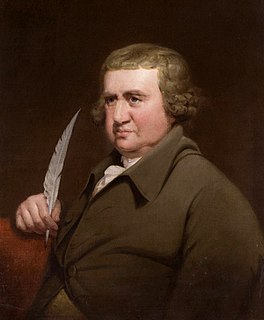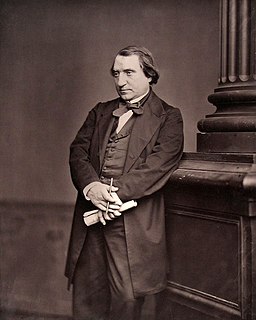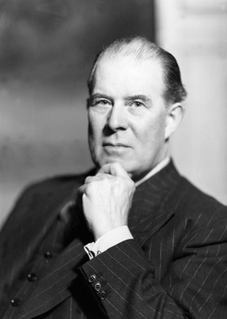A Quote by Erasmus Darwin
Some philosophers have been of opinion that our immortal part acquires during this life certain habits of action or of sentiment, which become forever indissoluble, continuing after death in a future state of existence ... I would apply this ingenious idea to the generation, or production of the embryon, or new animal, which partakes so much of the form and propensities of the parent.
Related Quotes
Owing to the imperfection of language the offspring is termed a new animal, but it is in truth a branch or elongation of the parent; since a part of the embryon-animal is, or was, a part of the parent; and therefore in strict language it cannot be said to be entirely new at the time of its production; and therefore it may retain some of the habits of the parent-system. (1794)
If I am mistaken in my opinion that the human soul is immortal, I willingly err; nor would I have this pleasant error extorted from me; and if, as some minute philosophers suppose, death should deprive me of my being, I need not fear the raillery of those pretended philosophers when they are no more.
I believe that a desirable future depends on our deliberately choosing a life of action over a life of consumption, on our engendering a lifestyle which will enable us to be spontaneous, independent, yet related to each other, rather than maintaining a lifestyle which only allows to make and unmake, produce and consume - a style of life which is merely a way station on the road to the depletion and pollution of the environment. The future depends more upon our choice of institutions which support a life of action than on our developing new ideologies and technologies.
Salvation is not some felicitous state to which we can lift ourselves by our own bootstraps after the contemplation of sufficiently good examples. It is an utterly new creation into which we are brought by our death in Jesus' death and our resurrection in his. It comes not out of our own best efforts, however well-inspired or successfully pursued, but out of the shipwreck of all human efforts whatsoever.
Not only is there no guarantee of the temporal immortality of the human soul, that is to say of its eternal survival after death; but, in any case, this assumption completely fails to accomplish the purpose for which it has always been intended. Or is some riddle solved by my surviving forever? Is not this eternal life itself as much of a riddle as our present life?
It is evident, indeed, that such a doctrine, taken by itself in a literal manner, had no future. The world, in continuing to exist, caused it to crumble. One generation of man at the most was the limit of its endurance. The faith of the first Christian generation is intelligible, but the faith of the second generation is no longer so. After the death of John, or of the last survivor, whoever he might be, of the group which had seen the master, the word of Jesus was convicted of falsehood.
It is not the organs-that is, the character and form of the animal's bodily parts-that have given rise to its habits and particular structures. It is the habits and manner of life and the conditions in which its ancestors lived that have in the course of time fashioned its bodily form, its organs and qualities.
There are some places which, seen for the first time, yet seem to strike a chord of recollection. "I have been here before," we think to ourselves, "and this is one of my true homes." It is no mystery for those philosophers who hold that all which we shall see, with all which we have seen and are seeing, exists already in an eternal now; that all those places are home to us which in the pattern of our life are twisting, in past, present and future, tendrils of remembrance round our heart-strings.
Every new born being indeed comes fresh and blithe into the new existence, and enjoys it as a free gift: but there is, and can be, nothing freely given. It's fresh existence is paid for by the old age and death of a worn out existence which has perished, but which contained the indestructible seed out of which the new existence has arisen: they are one being.
By 'coming to terms with life' I mean: the reality of death has become a definite part of my life; my life has, so to speak, been extended by death, by my looking death in the eye and accepting it, by accepting destruction as part of life and no longer wasting my energies on fear of death or the refusal to acknowledge its inevitability. It sounds paradoxical: by excluding death from our life we cannot live a full life, and by admitting death into our life we enlarge and enrich it.
... even if Lucretius was wrong, and the soul is immortal, it is nevertheless steadily changing its interests and its possessions.Our lives are mortal if our soul is not; and the sentiment which reconciled Lucretius to death is as much needed if we are to face many deaths, as if we are to face only one.
The breakdown of Plato's philosophy is made apparent in the fact that he could not trust to gradual improvements in education to bring about a better society which should then improve education, and so on indefinitely. Correct education could not come into existence until an ideal state existed, and after that education would be devoted simply to its conservation. For the existence of this state he was obliged to trust to some happy accident by which philosophic wisdom should happen to coincide with possession of ruling power in the state.




































